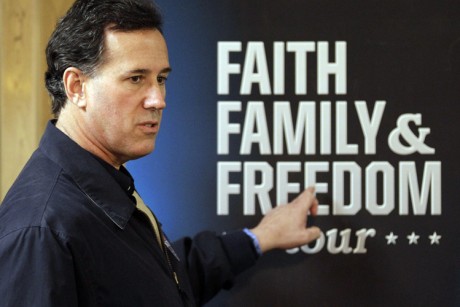USA: Public Views of the Divide between Religion and Politics
By Pew Research Center | Mar 02, 2012

Recent comments by US presidential candidate Rick Santorum have brought renewed attention to the role of religion in politics. In both 2010 and 2008, narrow majorities said that churches and other houses of worship should keep out of political matters rather than express their views on social and political questions, according to polls by the Pew Research Center for the People & the Press and the Pew Forum on Religion & Public Life.
That represented a change from earlier in the 2000s and the 1990s, when more Americans supported churches and other houses of worship speaking out on political matters. However, opinions in 201o were nearly identical to those in a 1968 Gallup survey, when 53% said churches should keep out of political matters.
While support for churches’ involvement in politics has fluctuated, there has been consistent agreement over the years that houses of worship should not directly endorse political candidates. In 2010, 70% said churches and other houses of worship should not come out in favor of one candidate over another; just 24% say they should. These opinions have changed little over the past decade.
The public has been divided over the amount of expressions of religious faith by politicians: in 2010, 37% said there had been too little expression of religious faith by political leaders while 29% said there had been too much, and 24% said political leaders expressed religious faith the right amount. These opinions also had shown relatively little change from previous Pew Research Center religion and politics surveys.
More Oppose Churches Expressing Political Views
From 2004 to 2008, there was a sharp increase in the percentage of Americans saying that churches and other houses of worship should keep out of political matters. Notably, much of this change came among conservatives. (See “More Americans Question Religion’s Role in Politics,” Aug. 21, 2008.)
In 2004, just 30% of conservative Republicans said houses of worship should keep out of political matters. But in 2008, 48% of conservative Republicans expressed this view; that percentage fell to 40% in 2010.
Democrats’ opinions about the role of churches in politics changed less during this period. In 2010, 56% said they should keep out of political matters, which was comparable to opinions in 2008 (52%) and 2004 (51%).
White evangelical Protestants are more supportive of an active political role for churches and other houses of worship than are members of most other religious groups. In 2010, 39% of white evangelicals said churches should stay out of political matters; that compared with 60% of white mainline Protestants and 56% of white Catholics. Still, the percentage of white evangelicals saying houses of worship should stay out of political matters increased from 28% in 2004 to 39% in 2010.
Read the full analysis: http://www.people-press.org/2012/02/27/public-views-of-the-divide-between-religion-and-politics/















